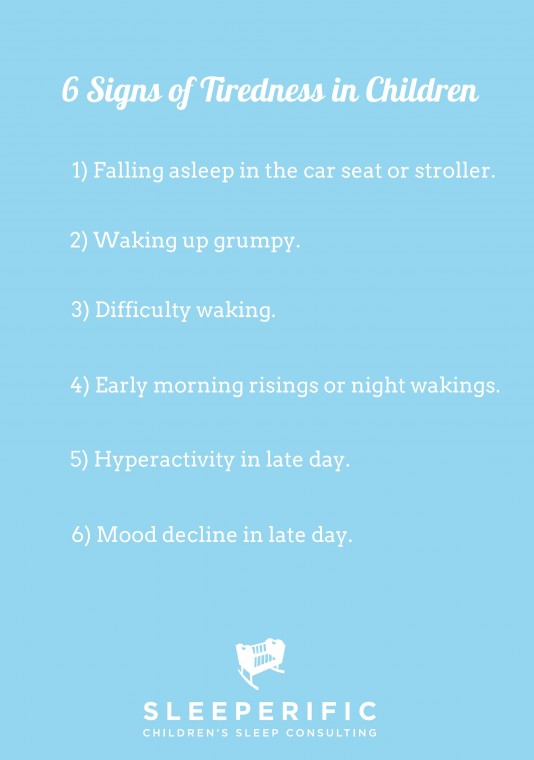One of the first things I try to assess when I work with a new family is the child’s fatigue level. How much sleep does that child need? These are some of the aspects of sleep I look at to determine if that child is well rested, or if he/she could be logging a few more hours of zzzs. Primarily, I ask about two things that parents can typically give me an indication of:
Quantity of Sleep – In a 24 hour period, how many of those are spent asleep? Approximately 90% of babies and children will fall into these ranges. About 5% of kids need more, about 5% of kids need less sleep than what is indicated. It’s not going to fit each and every child, but ranges of “normal” are helpful.
Quality of Sleep – Is the baby or child having long, restful stretches (depending on the age, this may still include wakings for feedings) and regular/predictable naps? We all know that a night of broken sleep is not nearly as restful as a night of consolidated sleep. Without longer, consolidated stretches of sleep, it’s unlikely that child can be well rested.
Some other “fatigue symptoms” to consider include the following list. It’s not necessarily just one factor to consider, but the combination of all of these together:

1) Falling asleep in their car seat or stroller, even when it’s not around nap/bedtime or on the shortest trips.
2) Waking from naps or in the morning grumpy.
3) Difficulty waking the child in the morning.
4) Early morning risings (generally before 5:30AM) or possibly other night wakings which aren’t related to hunger.
5) “Tired but wired” behaviour. The child appeared drowsy earlier, but as the day or evening wears on, the child is energetic, having trouble settling, lying quietly for their nap or bedtime (think along the lines of a second wind).
and
6) Fussiness/clingy, general mood decline, especially in the late afternoon or early evening.
If you feel any your children (or you!) aren’t getting adequate rest, consider what you can do to start getting more sleep into your families daily routines. Fatigue and exhaustion doesn’t need to be a way of life for your child or your family.
